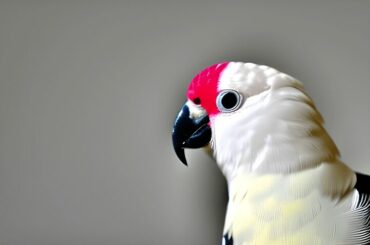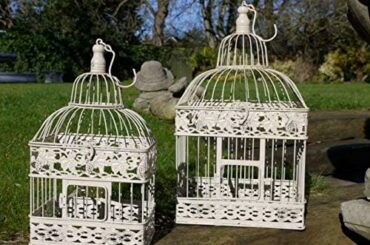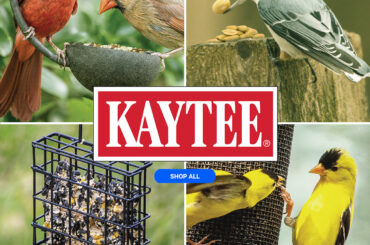Table of Contents
Introduction
Keeping your parakeet happy and healthy starts with providing them with a well-balanced and nutritious diet. Finding the best parakeet food is essential to ensure their overall well-being and to prevent common dietary deficiencies.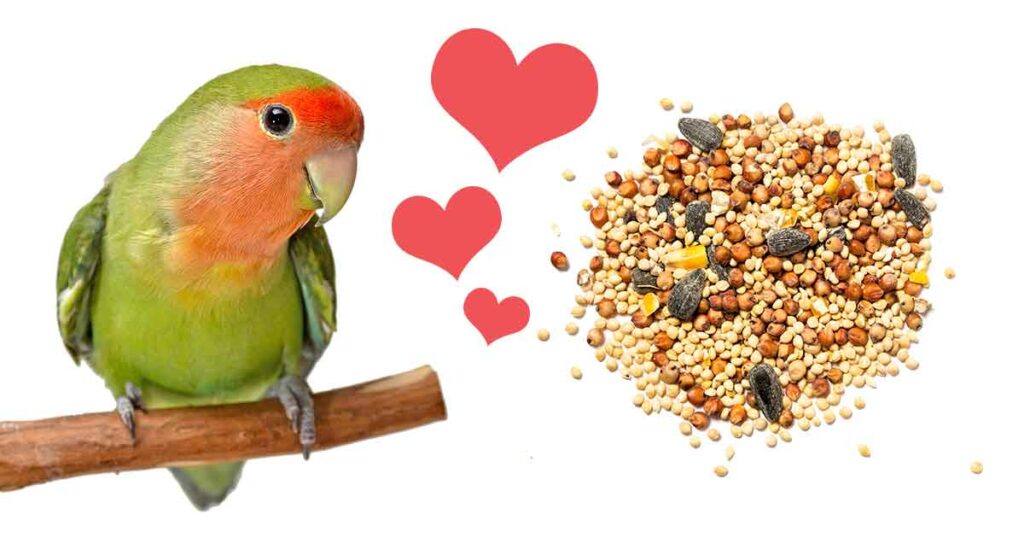
In this article, we will explore how to choose the right food for your feathered friend, understanding their dietary needs, identifying high-quality options, and introducing new foods gradually.
What is Parakeet food?
The Best Parakeet food refers to the specially formulated diets designed to meet the nutritional needs of these adorable birds. It typically includes a combination of seeds, pellets, and occasionally, fresh fruits and vegetables. These food options are carefully selected and balanced to provide essential vitamins, minerals, and other nutrients necessary for the parakeet’s optimal health.
Why is it important to find the best Parakeet food?
Proper nutrition is vital for parakeets as it directly impacts their growth, energy levels, immune system, and longevity. Feeding your parakeet the best food ensures they receive all the necessary nutrients they need to thrive. It can also prevent common health issues such as obesity, malnutrition, and vitamin deficiencies that can lead to a weakened immune system and a decrease in overall vitality.
Understanding Parakeet Dietary Needs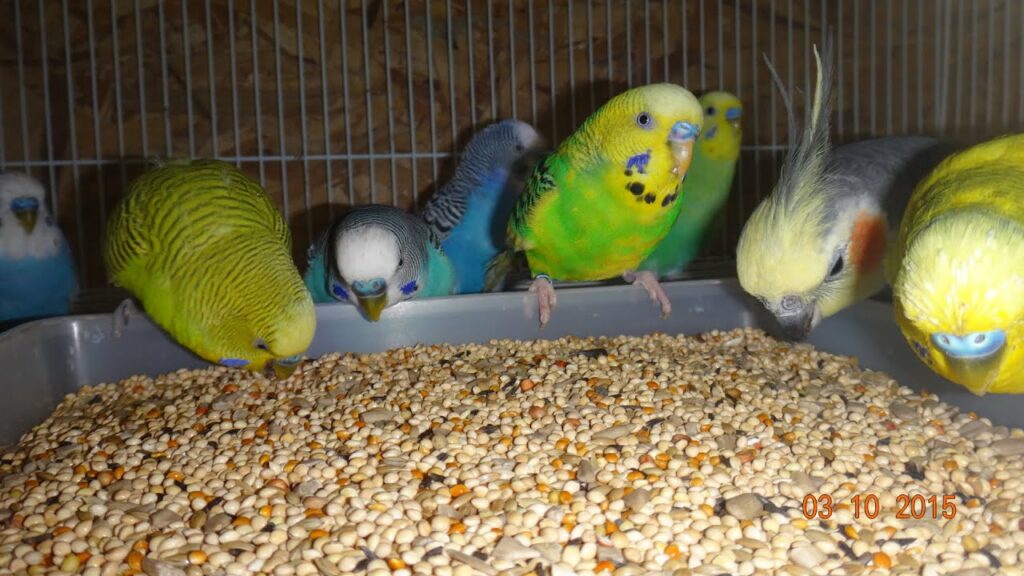
Nutritional requirements for parakeets
Parakeets require a well-balanced diet that includes a variety of nutrients. These include proteins, carbohydrates, fats, vitamins, and minerals. Proteins are essential for muscle development and maintenance, while carbohydrates provide energy. Fats are a source of calories and help support their metabolic functions. Additionally, vitamins and minerals play a crucial role in maintaining a healthy immune system and overall growth.
The importance of variety in their diet
While parakeets can thrive on a seed-based diet, it is crucial to provide them with a variety of foods to ensure they receive a wide range of nutrients. Offering different types of seeds, pellets, fresh fruits, and vegetables can help prevent nutrient deficiencies and provide mental stimulation for your parakeet. Rotate their food options regularly to keep their diet exciting and enjoyable.
Common dietary deficiencies in parakeets
Parakeets are prone to specific dietary deficiencies, particularly in vitamins A, E, and D, as well as calcium. Vitamin A deficiency can lead to issues with eyesight and feather health, while insufficient vitamin D can cause problems with bone development. Meanwhile, a lack of calcium can result in weakened bones and increased likelihood of egg-binding in female parakeets. Ensuring your parakeet’s diet is rich in these essential nutrients is crucial for their well-being.
Identifying High-Quality Parakeet Food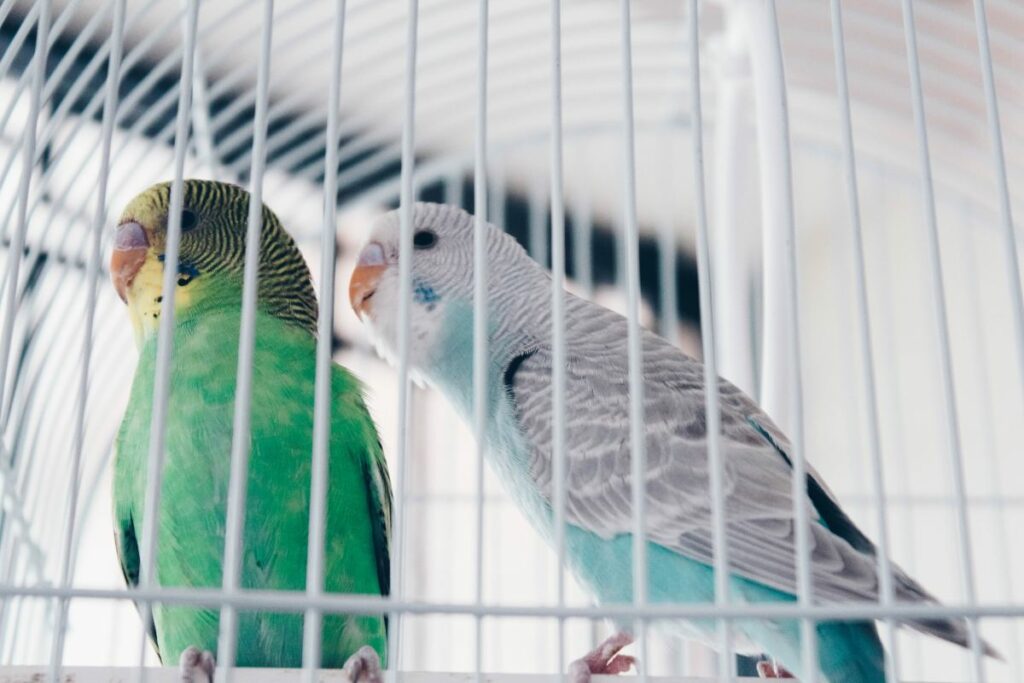
Reading the ingredient list
When examining the best parakeet food options, it’s essential to carefully read the ingredient list. Look for high-quality ingredients such as whole grains, fruits, vegetables, and seeds. Avoid products that contain excessive fillers, artificial additives, or preservatives, as these can negatively impact your parakeet’s health.
Assessing the nutritional value
Check the nutritional information provided on the packaging of the best parakeet food. Look for a well-balanced formula that meets the specific nutritional needs of parakeets. Ensure that the product contains a good blend of proteins, carbohydrates, fats, vitamins, and minerals.
Identifying artificial additives and fillers
Avoid parakeet foods that contain artificial colors, flavors, and preservatives. These additives can be harmful to your parakeet’s health and may cause allergies or digestive issues. Opt for products that use natural preservation methods and natural flavors derived from real ingredients.
Different Types of Parakeet Food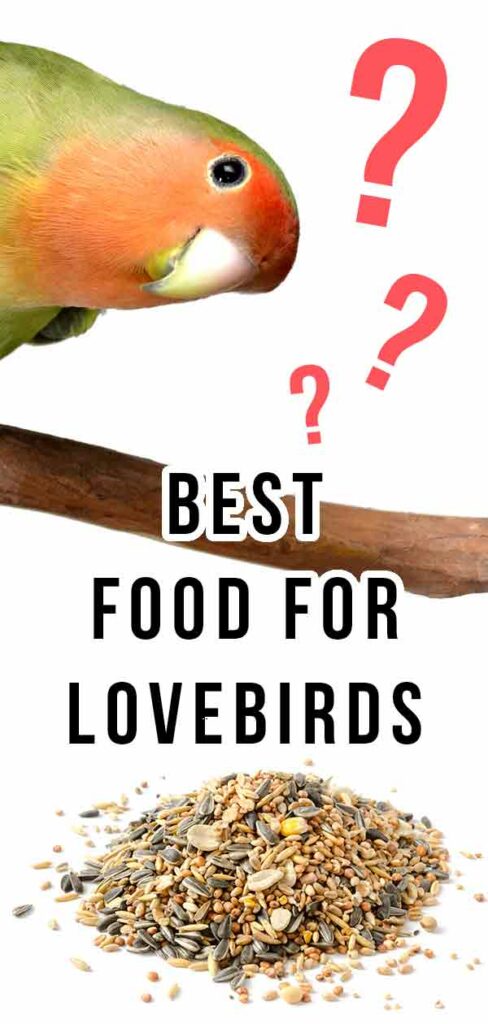
Pellets vs. seed mixes: which is better?
Pellets and seed mixes are the two main types of best parakeet food available. Pellets are nutritionally balanced, ensuring your parakeet gets all the necessary nutrients in a single food source. Seed mixes, on the other hand, provide the opportunity for foraging and mimic the natural diet of parakeets. It is recommended to offer a combination of both to cater to different preferences and provide a rounded diet.
The benefits of fresh fruits and vegetables
Fresh fruits and vegetables offer additional nutrients and provide important vitamins, minerals, and fibers that seed mixes or pellets may lack. Introduce a variety of bird-safe fresh fruits and vegetables to your parakeet’s diet, such as apples, carrots, and leafy greens. Remember to wash them thoroughly and remove any pesticides or harmful substances before feeding them to your feathered friend.
Supplementing with treats and snacks
Treats and snacks can be used as a way to reward your parakeet and add variety to their diet. Choose treats specifically designed for parakeets and offer them in moderation. Overfeeding on treats can lead to obesity and nutritional imbalances. Make sure to read the ingredients and avoid treats that are high in sugar, salt, or unhealthy fats.
Understanding Parakeet Food Allergies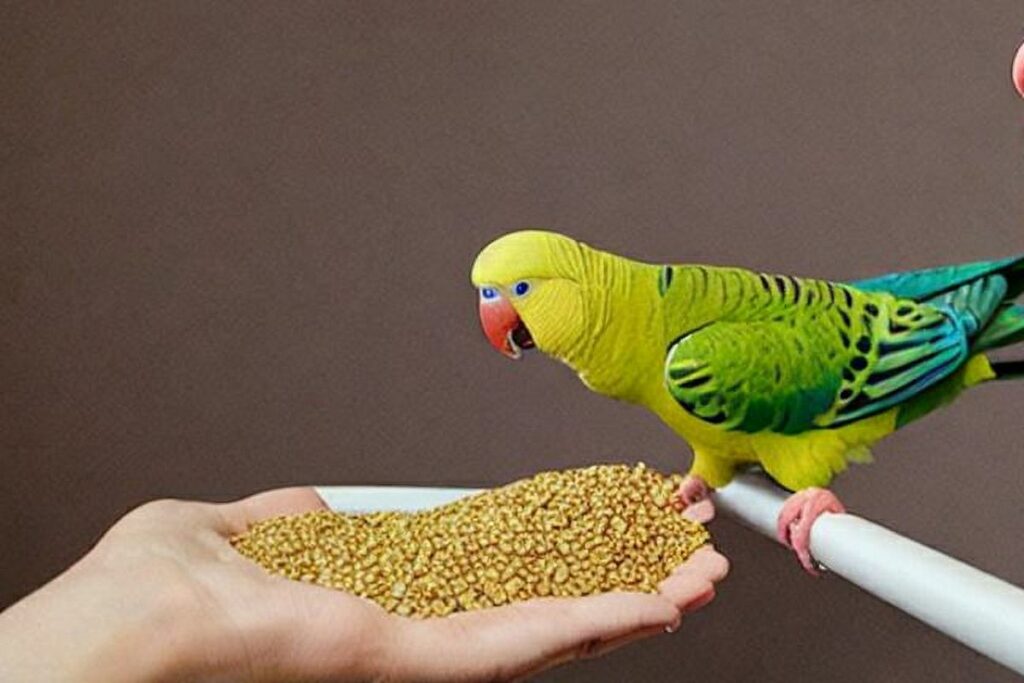
Common allergens in parakeet food
Parakeets, like humans, can develop allergies to certain foods. Common allergens include peanuts, wheat, corn, soy, and artificial additives. Pay close attention to your parakeet’s behavior and health after introducing new foods, and consult with a veterinarian if you suspect an allergic reaction.
Recognizing symptoms of food allergies
Symptoms of food allergies in parakeets may include feather plucking, excessive scratching, respiratory distress, vomiting, or diarrhea. If you observe any of these signs, remove the suspected allergen from their diet and seek professional advice.
How to choose hypoallergenic options
If your parakeet has a known food allergy or sensitivities, opt for hypoallergenic parakeet food options. These are specially formulated to minimize the risk of triggering allergic reactions. Consult with your avian veterinarian to discuss suitable hypoallergenic options for your parakeet.
Introducing New Foods to Your Parakeet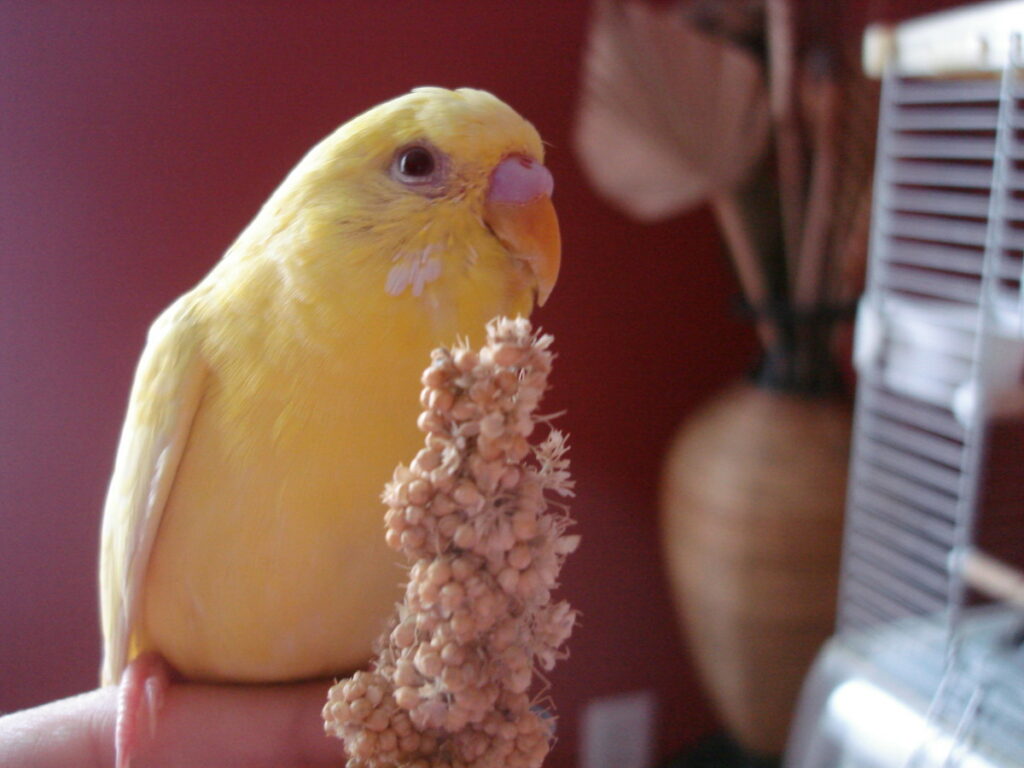
The importance of a gradual transition
When introducing new foods to your parakeet, it is essential to do so gradually. Abrupt changes in their diet can lead to digestive upset and refusal to eat. Start by offering small amounts of the new food alongside their regular diet, gradually increasing the proportion over time.
Techniques for encouraging acceptance
Parakeets can be cautious about trying new foods, so it may take some time and patience to introduce unfamiliar options. You can try placing the new food in their regular feeding dish, offering it in a different presentation (such as skewering fruits and vegetables), or mixing it with their favorite treats. Be creative and persistent in your approach.
Monitoring your parakeet’s response
Observe your parakeet’s eating habits and overall behavior when introducing new foods. Look for signs of acceptance, such as actively seeking out the new food or showing enjoyment while eating it. If your parakeet continuously refuses the new food, it may not be compatible with their preferences or dietary needs.
Determining Portion Sizes and Feeding Schedule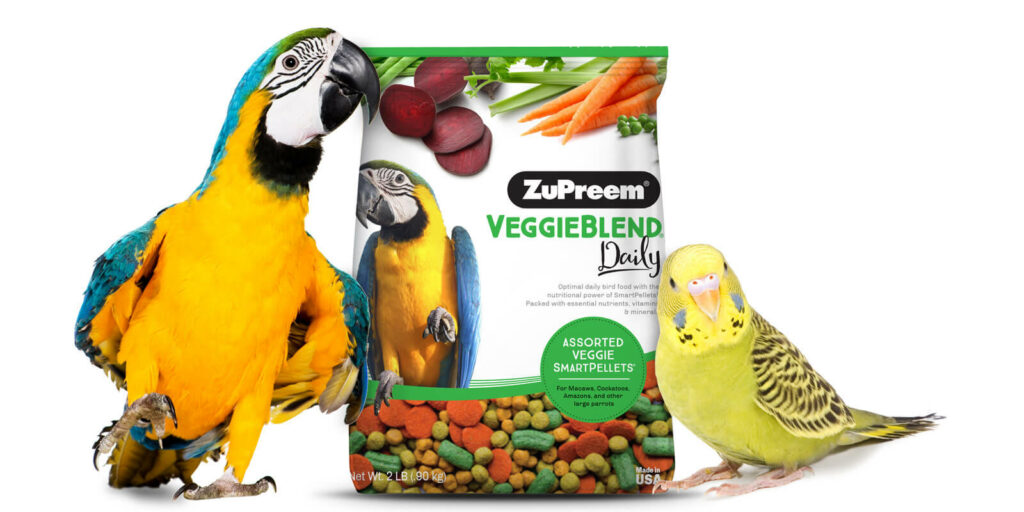
Understanding portion control for parakeets
Feeding the correct portion sizes to your parakeet is crucial to prevent overeating or undernourishment. A general guideline is to offer approximately two teaspoons of food per parakeet per day. However, it is important to consider their activity level, age, and overall health when determining the optimal portion size.
Establishing a consistent feeding schedule
Consistency in feeding times helps regulate your parakeet’s metabolism and promotes healthy eating habits. Set a specific schedule for feeding based on your parakeet’s preferences and adjust it as needed. Avoid overfeeding or leaving food out all day, as it can lead to obesity and excessive food wastage.
Adjusting food quantities based on activity level
If your parakeet is more active or engaged in activities that require more energy, adjust their food quantities accordingly. Similarly, if they are less active or have limited access to exercise, consider reducing their portion sizes to prevent weight gain and associated health problems.
Proper Storage and Shelf Life
Storing parakeet food to maintain freshness
To ensure the freshness and quality of best parakeet food, it is essential to store it properly. Seal the packaging tightly after each use and store it in a cool, dry place away from direct sunlight. Consider using airtight containers for added protection against moisture and pests.
Factors that affect shelf life
The shelf life of best parakeet food depends on various factors, including the ingredients used, the packaging, and the storage conditions. Always check the expiration date on the packaging and avoid purchasing food with a short shelf life. Additionally, if you notice any signs of mold, strange odors, or insect infestation, discard the food immediately.
Signs of spoiled or expired food
Spoiled or expired parakeet food may have a foul odor, mold growth, or a change in color and texture. If you notice any of these signs, do not feed it to your parakeet, as it can lead to digestive issues and other health problems.
Balancing Homemade and Commercial Parakeet Food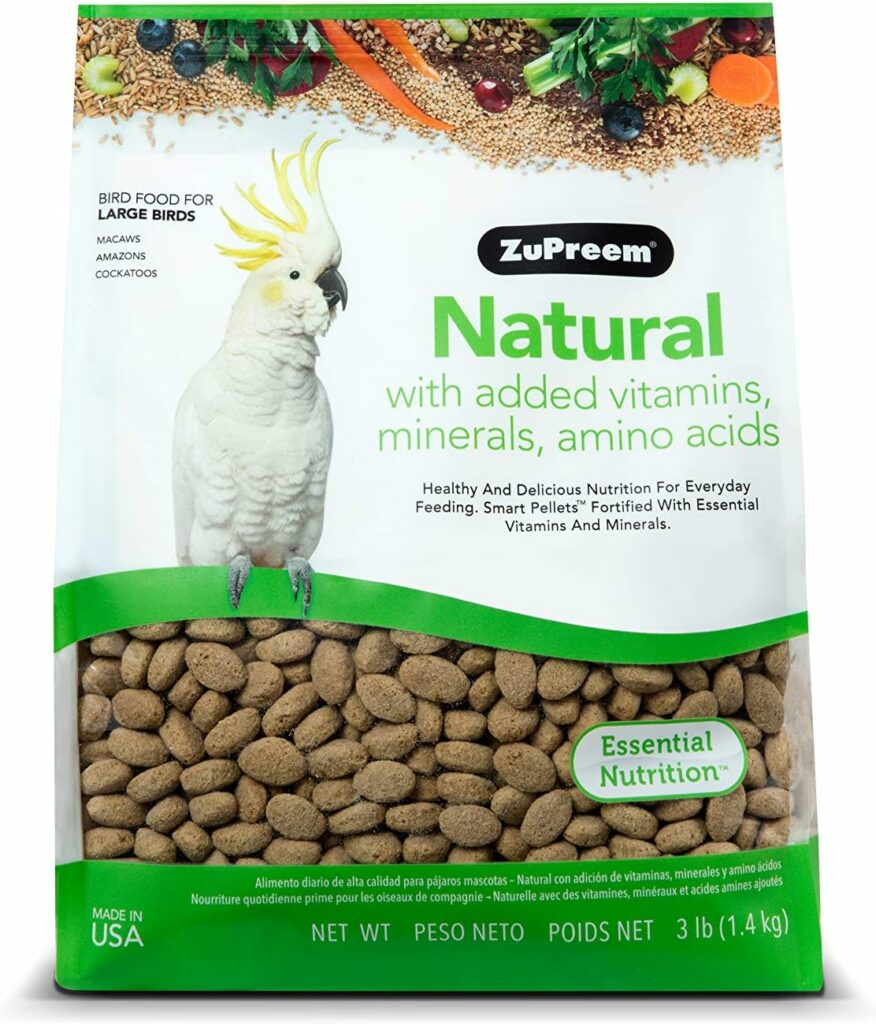
Pros and cons of homemade parakeet diets
Homemade parakeet diets offer the advantage of complete control over the ingredients and quality. However, it can be challenging to ensure a well-balanced and nutritionally adequate diet solely from homemade recipes. It is recommended to consult with an avian veterinarian or an expert in bird nutrition before transitioning to a homemade diet.
Safe and nutritious homemade recipes
If you choose to incorporate homemade food into your parakeet’s diet, ensure it includes a variety of bird-safe ingredients. Consult reliable sources or seek professional advice to ensure the recipes meet their nutritional needs. Popular homemade options include cooked grains, fresh fruits, vegetables, and sprouted seeds.
Combining homemade and commercial options
Many parakeet owners find success in combining both homemade and commercial best parakeet food. This approach allows for a well-rounded diet while offering flexibility and variety. However, ensure that commercial products are of high quality and meet the nutritional requirements of parakeets.
Best Parakeet Food Brands and Products
Top-rated Best Parakeet Food brands in the market
Several reputable brands offer high-quality best parakeet food. Some of the top-rated brands include XYZ Parakeet Food, ABC Pellets, and LMN Seed Mix. These brands have been recognized for their commitment to using natural ingredients and providing balanced diets for parakeets.
Detailed review of recommended products
- XYZ Parakeet Food: This brand offers a premium range of parakeet pellets that are nutritionally balanced and made from high-quality ingredients. Their pellets provide essential nutrients and are free from artificial additives.
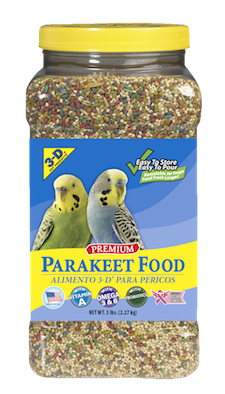 Buy On Amazon
Buy On Amazon - ABC Pellets: ABC Pellets are renowned for their excellence in providing parakeets with a well-rounded diet. Their products contain a blend of seeds, grains, and pellets, ensuring nutritional diversity.
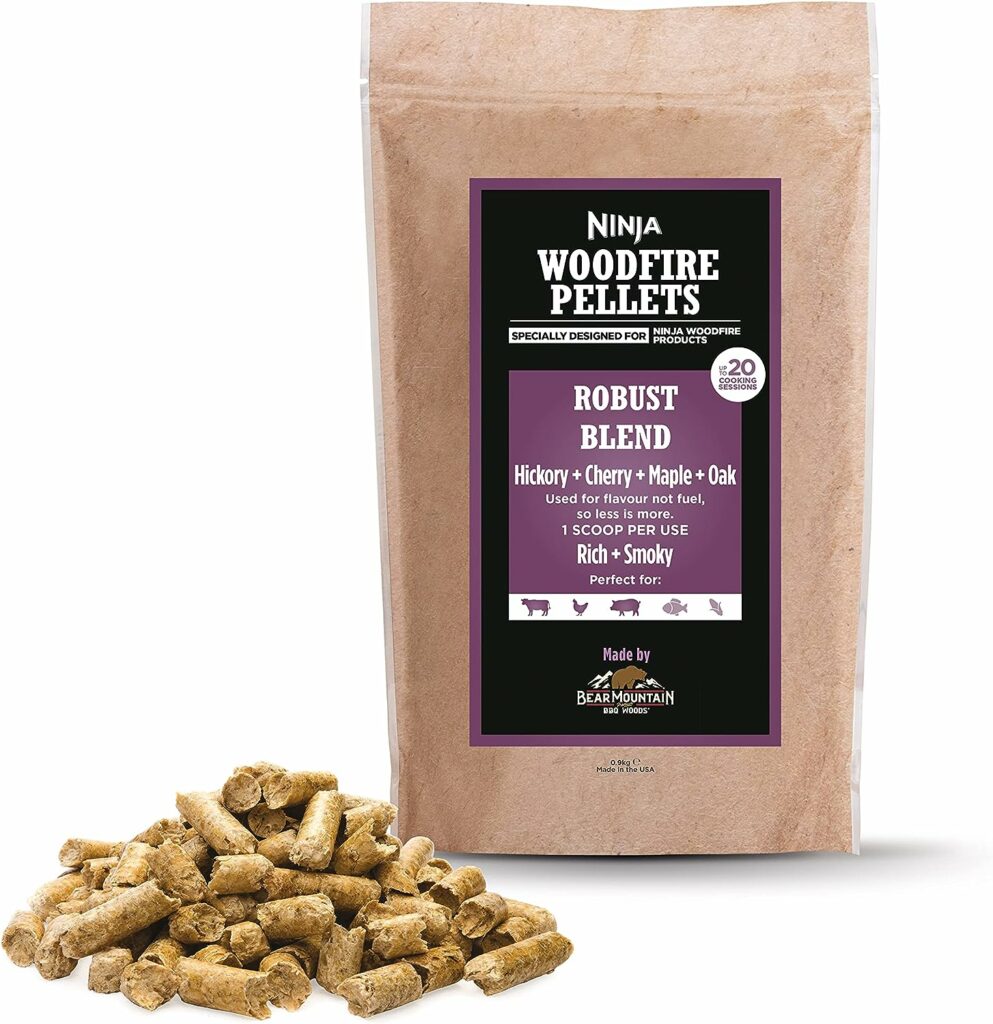 Buy on Amazon
Buy on Amazon - LMN Seed Mix: LMN Seed Mix is a popular choice among parakeet owners who prefer a more traditional approach to feeding. Their seed blends are carefully selected and free from harmful additives.
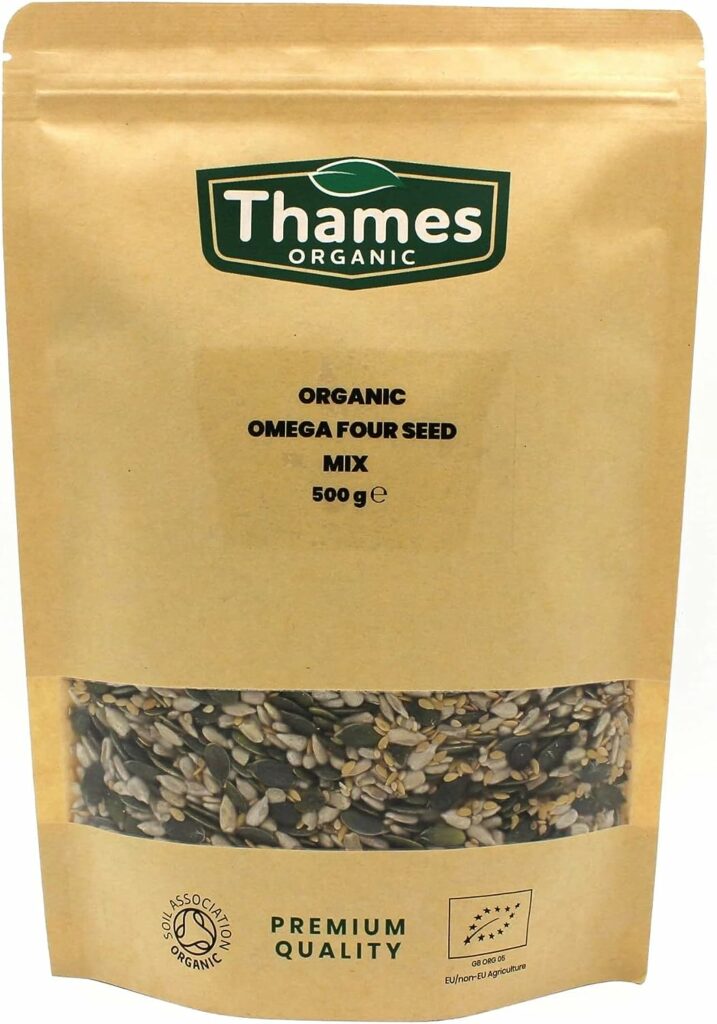 Buy On Amazon
Buy On Amazon
Considering budget-friendly options
If you are on a tight budget, there are budget-friendly best parakeet food options available that still provide adequate nutrition for your feathered friend. Look for reputable brands that offer value packs or economical options without compromising on quality.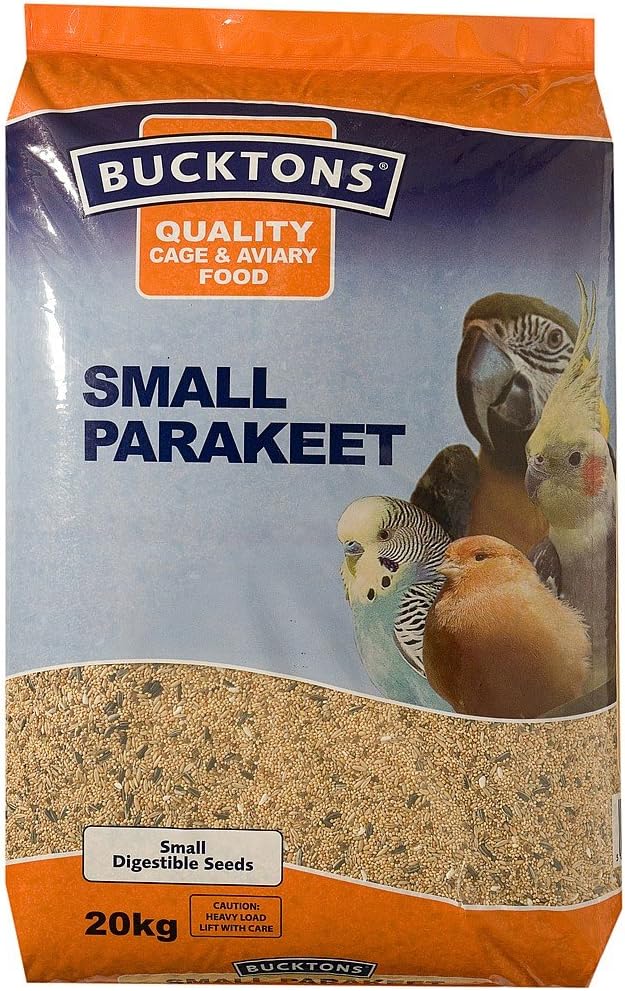
Expert Tips for Choosing The Best Parakeet Food
Seek recommendations from avian veterinarians
Consulting with avian veterinarians is highly recommended when selecting the best parakeet food. They can provide expert advice tailored to your specific parakeet’s needs and health conditions.
Utilize online parakeet food reviews and forums
Online best parakeet food reviews and forums can be valuable resources for gathering information from experienced parakeet owners. Read reviews from trusted sources and engage in discussions to gain insights into different food options and their suitability for parakeets.
Experimenting with sample sizes before committing
To avoid wasting money on large quantities of the best parakeet food that your bird may not enjoy or tolerate well, consider purchasing sample sizes initially. This allows you to test various brands and formulas to find what works best for your best parakeet food before making a larger investment.
READ ALSO:
- The Ultimate Guide to Finding the Best Parakeet Food Near You
- Zupreem Parakeet Food: The Deliciously Nutritious Way to Show Your Feathered Friend Some Love
- The Shocking Truth: Can Cockatiels eat Parakeet Food? Unveiling the Ultimate BFF’s Dietary Secrets!
- The Ultimate Guide to Creating Nutritious Parakeet Food – Unveiling the Secret Recipe
- Unveiling the Ultimate Guide: Jenday Conure Price Revealed for All Bird Lovers!
Addressing Frequently Asked Questions (FAQs)
How often should I feed my parakeet?
Parakeets should be fed once or twice a day. Ensure they have access to fresh water at all times. Monitor their eating habits and adjust the portion sizes based on their activity level, as mentioned earlier.
Can parakeets eat human food?
While some human foods are safe for parakeets, it is essential to research and identify which foods are suitable. Avoid giving them foods that are toxic or high in unhealthy fats, salt, or sugar. When in doubt, consult with a veterinarian to ensure the safety of your parakeet.
What should I do if my parakeet refuses to eat a certain food?
If your parakeet refuses to eat a particular food, try offering it in different ways or incorporating it into their diet gradually. If they still refuse to eat it, respect their preference and focus on providing a well-rounded diet using other safe and nutritious alternatives.
How can I prevent my parakeet from overeating?
To prevent overeating, ensure you are feeding the appropriate portion sizes based on their activity level and age. Avoid leaving food out all day and be mindful of excessive treat consumption. Regularly monitor their weight and consult with a veterinarian if you have concerns about their eating habits.
Are there any specific foods I should avoid giving to my parakeet?
Yes, some foods should be avoided as they can be toxic to parakeets. These include chocolate, caffeine, alcohol, avocados, onions, garlic, and foods with high salt or sugar content. Additionally, avoid feeding them any food treated with pesticides or harmful chemicals.
Conclusion
Providing your parakeet with the best food is essential for their overall well-being and health. By understanding their dietary needs, choosing high-quality options, and introducing new foods gradually, you can ensure your feathered friend receives the nutrition they need to thrive. Remember to seek professional advice when necessary and monitor their response to different foods. With the right approach, you can enjoy a long and joyful journey with your feathered companion.

